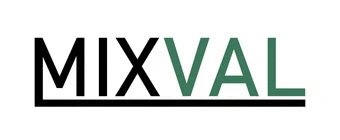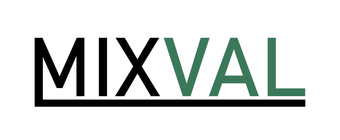It appears that your cart is currently empty
Do I Really Need a Cash Counting Machine?
You may automatically picture a bank when you think of an electronic cash counting machine, but the truth is that there are a number of businesses that could benefit and find great value in one of these convenient systems. Electric money counters are no longer just for the cash-managing businesses themselves; they are now manufactured in various models that are specifically for other types of companies, such as retail shops, convenience stores, grocery stores, churches, laundromats, non-profit organizations, and any other type of business who handles cash in stack-quantities.
For those of you on the fence about whether or not your individual business would benefit enough from an automatic system, we’ve put together the pros and cons of cash counting machines for you to review before you buy. We will start with the benefits, and then move on to the downfalls or considerations.
Benefits of Buying an Electronic Money Counter
Speed - One of the most obvious benefits of taking this previously manual task and automating it is the speed you can achieve with a machine. In fact, many cash counters can perform at speeds up to an impressive 1,200 bills per minute (and elite models can do even more!). Let’s do the math on that for a minute; 1,200 bills per minute divided by 60 seconds in one minute gives us a speed of 20 bills per second. Now, just for fun, try counting a stack of cash by-hand and time the results so we can compare. How do you think you will stand up to the machine? The truth is that it is just not possible to get anywhere close to the speed of an automated money counting machine when you are counting by-hand.
Reduce Errors - When it comes to company losses of physical cash, you may be surprised to learn that the main culprit is not actually fraud, and not even theft… it is actually your run of the mill, every day, not-at-all-exciting human error. That’s right, the main driver of most company loss of cash is caused by just plain old mistakes. A cash counting machine, however, is automated and tailored to ensure accuracy. Just think back to the last time you manually counted a stack of bills; you reach 50, 60, 65, 70, 75, 80, 85, 86, 87, 88 and then *ring ring* goes your phone. Even if you don’t answer it, the surprising tone throws you off your count and you have to start again. Or, maybe you just continue on from where you think you left off at 98.
When you are tasked with the duty to count hundreds of bills, this quickly becomes a time-consuming, tedious process. Even someone with fantastic attention to detail can get distracted in this situation. In the best case scenario, you catch the mistake and just waste a bit of time doing it again. In the worst case, the incorrect deposit slips are filled out, potentially resulting in bank error fees and hours of correcting logs and deposits.
Protection Against Counterfeit Bills - Many cash counters offer various types of counterfeit detection solutions. As counterfeiters become more sophisticated, and as the printing processes improve, the US treasury continues to add more security measures to bills. Back in the day, I remember using a basic counterfeit pen that we would run over a $100 bill and wait to see if it changed from tan to black, indicating a fraudulent bill; and even then, sometimes the ink would be some sort of a middle-ground dark brown that was very confusing. A cash counting machine equipped with counterfeit detection eliminates that confusion and automates the process. Various models will offer various kinds of protection measures, so you can choose a more affordable machine with just 1 or 2 scans (usually UV and IR), or a more sophisticated model with 4+ deception methods.
Discourage Theft - If your staff knows that cash is counted after each shift, they will be more likely to be discouraged to steal. While a cash counter in itself is not a theft-protection-device of any kind, it can work to make your employees more accountable, and cause them to think twice before swiping an extra twenty or two from the drawer.
Count Various Denominations - A cash counting machine with mixed value bill detection can effortlessly handle stacks of bills that have $1s, $5s, $10s, $20s, $50s, $100s, and more, even when they’re all jumbled together. This is a specific function available only on certain models, so be sure to keep your eyes out for that “mixed bill counting” feature if this is important to you.
Portable - There are many money counting machines that are on the smaller side, which makes them easily portable. This feature may be ideal for a user who travels and uses their machine on-to-go, such as a non-profit organization, an event planning company, a church fundraiser, and more.
Convenience - If we set aside all of the trackable, financial benefits of a money counting machine, you are still left with one very important factor: convenience. There is nothing more stressful than tedious tasks like manually counting paper money in bulk. And when you’re performing a tedious task over and over, the possibility for error, the fatigue, and the general “blah” that can take over your mind and put you into auto-pilot are reason enough to look for a solution. An automatic money counter is that solution.
Downfalls of Buying an Electronic Money Counter
Price - The truth of the matter here is that a money counting machine is an electronic, and therefore, is priced accordingly. While you can find some small machines for around just $100, true quality cash counting machines will probably require an investment of at least $500, depending on your organization size. And that, I believe, is the secret: picture a money counter as an investment. Remember the time it will save, and the costs typically associated with that time, and take into consideration all of the benefits we discussed above. And then review the fact that, just as with any other expense for your business, you need to consider whether the cost of purchasing a cash counting machine is worth the benefits it provides your organization.
Noise - Paper bills are shot quickly through a cash counting machine, which does create a bit of noise during operation. Most users are fine with the noise level cash counters emit, but if you work in a quiet building, or a crowded building that already has too much noise pollution for your staff, then you may need to consider a specific location for your cash counter so that it will not affect the people nearby. Users actually report that MIXVAL machines are quieter than the old cash counting machines they were replacing, so there is less stress associated with loud levels of machine noise.
After reviewing the pros and cons of an automated money counter, where do you stand? Do you feel it is a good investment for your organization? Still not quite sure and you want to review some of the options available to compare? Browse the collection of premium-quality electronic cash counters at www.mixval.com today. They offer a variety of models for any user from entry-level, to professional high-volume applications.


0 comments